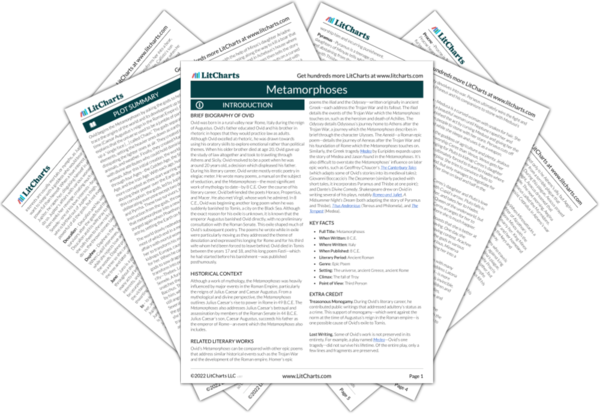Previous
Book 8: Philemon and Baucis
|
Previous
Book 8: Philemon and Baucis
|
Metamorphoses: Book 8: Erysichthon Summary & Analysis |
Next
Book 9: Achelous and Hercules
|


Upgrade to unlock the analysis and theme tracking for all of MetamorphosesMetamorphoses!
Get LitCharts A+